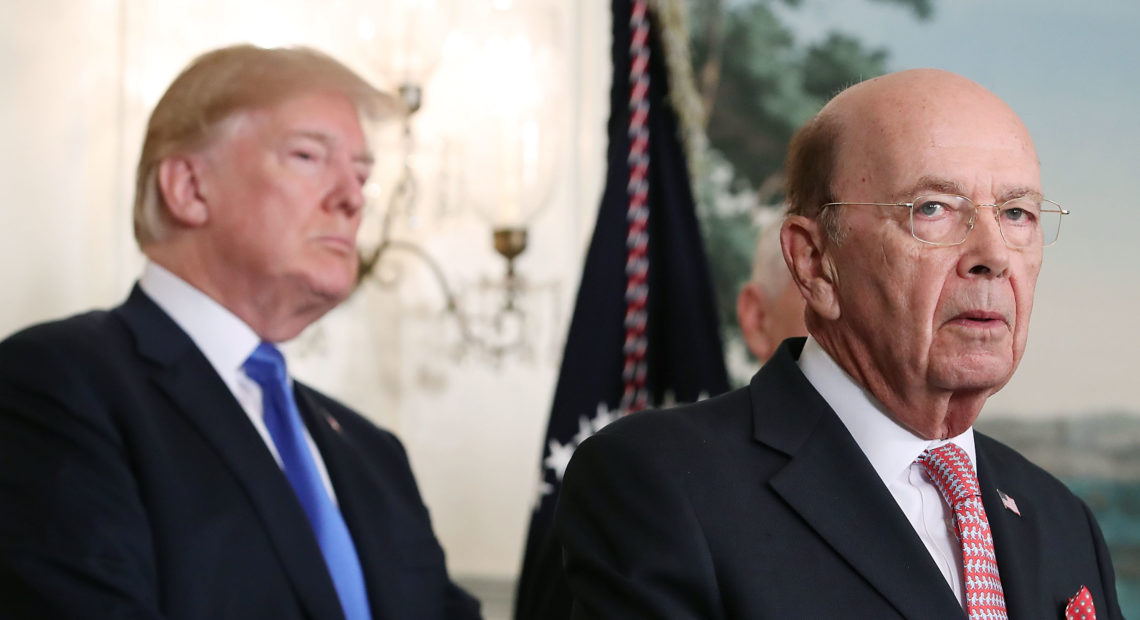
Trump Administration’s Census Citizenship Question Plans Halted By Third Judge
PHOTO- President Trump listens as Commerce Secretary Wilbur Ross, who oversees the census, speaks at the White House. Ross approved including on the 2020 census the question, “Is this person a citizen of the United States?” CREDIT: MARK WILSON/GETTY IMAGES
BY HANSI LO WANG
The Trump administration’s plans to add a hotly contested citizenship question to the 2020 census have suffered another major blow in the courts.
The question asks, “Is this person a citizen of the United States?”
A third federal judge has found the decision to include it on forms for the national headcount to be unlawful.
In a 119-page opinion, U.S. District Judge George Hazel in Maryland concluded that the decision by Commerce Secretary Wilbur Ross, who oversees the census, to add the question violated administrative law. Federal judges in New York and California came to the same conclusion.
Similar to the earlier ruling in California, the judge also found including the question would be unconstitutional because, at a time of increased immigration enforcement and anti-immigrant rhetoric, it hinders the government’s ability to count every person living in the U.S. once a decade as the Constitution requires.
Hazel ruled that the plaintiffs did not provide enough evidence to prove two additional claims — that adding the question was intended to discriminate against Latinos, Asian-Americans and immigrants; and that it was part of a conspiracy within the Trump administration to violate the constitutional rights of noncitizens and people of color.
This latest district court ruling in this almost yearlong legal battle is likely to be appealed all the way to the Supreme Court.
A Supreme Court hearing about whether including the question is constitutional and the New York ruling, which has already blocked the citizenship question, is scheduled to be held on April 23, and the justices are expected to rule by June on whether the 2020 census will ultimately include the question.
President Trump recently weighed in on the controversy with a tweet calling a census without the “all important” citizenship question “meaningless and a waste” of the billions the headcount costs.
The Trump administration has insisted that the Justice Department wants responses to the question to better enforce a part of the Voting Rights Act that protects racial and language minorities against discrimination.
For the California ruling, U.S. District Judge Richard Seeborg wrote in his opinion, however, that enforcing that civil rights law is “nothing more than a pretext designed to provide cover for the Secretary’s unexplained desire to add the citizenship question to the census.”
If the question is included, the Census Bureau is expecting fewer households to self-respond to the census, particularly among Latinos and households with noncitizens, including unauthorized immigrants.
Critics of the question worry that would affect the accuracy of new population numbers that determine how many congressional seats and Electoral College votes each state gets. Census numbers also guide how an estimated $880 billion a year in federal tax dollars for Medicaid, schools and other public services are distributed to local communities around the country.















